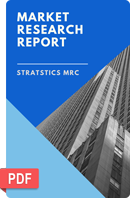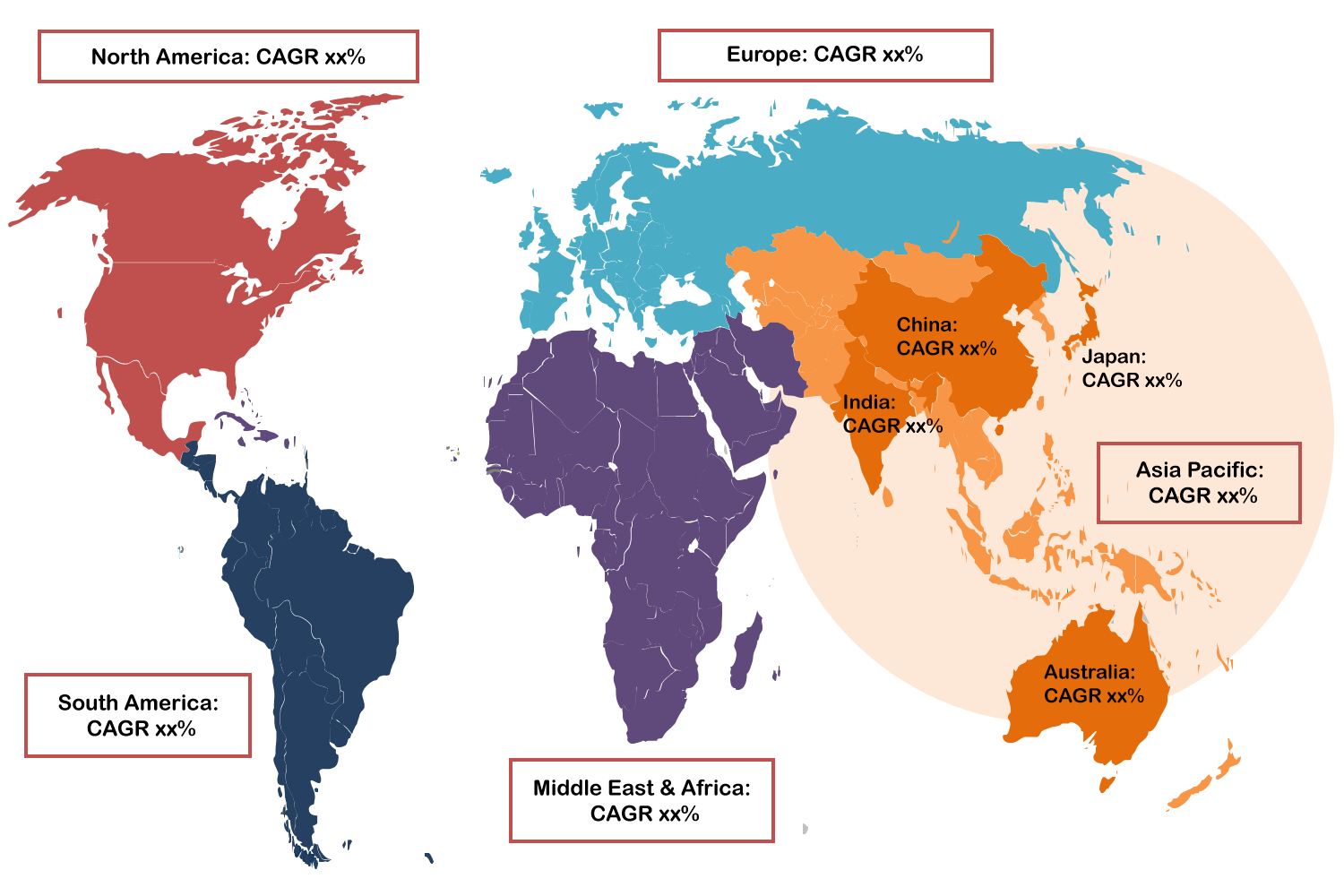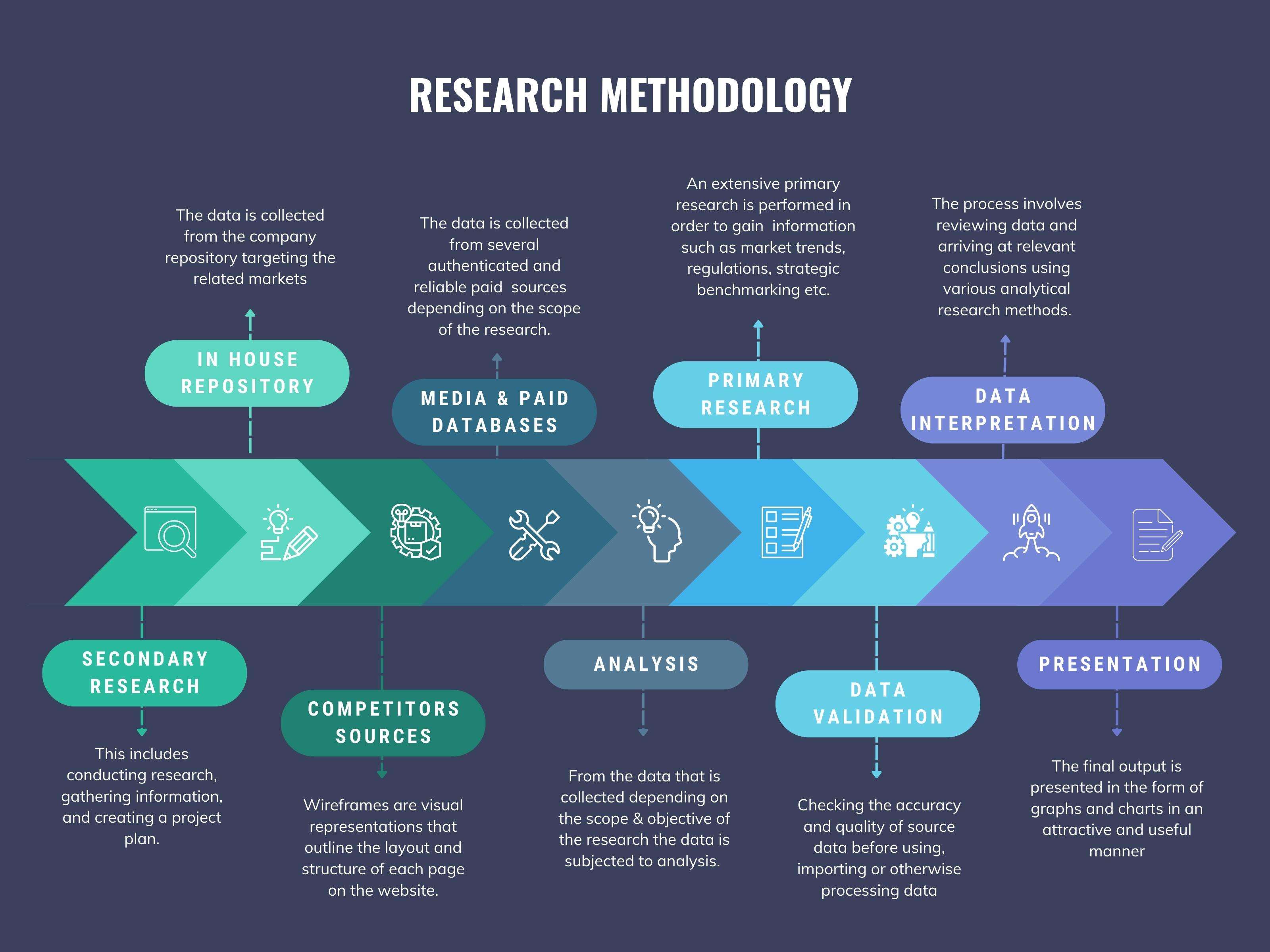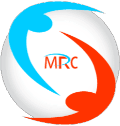
Fuel Cell Generator Market
Fuel Cell Generator Market Forecasts to 2032 - Global Analysis By Fuel Cell Type (PEMFC, SOFC, MCFC, DMFC, PAFC, AFC and Other Fuel Cell Types), Fuel Type, Deployment, Capacity, Application, End User and By Geography

|
Years Covered |
2024-2032 |
|
Estimated Year Value (2025) |
US $0.64 BN |
|
Projected Year Value (2032) |
US $3.34 BN |
|
CAGR (2025-2032) |
26.6% |
|
Regions Covered |
North America, Europe, Asia Pacific, South America, and Middle East & Africa |
|
Countries Covered |
US, Canada, Mexico, Germany, UK, Italy, France, Spain, Japan, China, India, Australia, New Zealand, South Korea, Rest of Asia Pacific, South America, Argentina, Brazil, Chile, Middle East & Africa, Saudi Arabia, UAE, Qatar, and South Africa |
|
Largest Market |
North America |
|
Highest Growing Market |
Asia Pacific |
According to Stratistics MRC, the Global Fuel Cell Generator Market is accounted for $0.64 billion in 2025 and is expected to reach $3.34 billion by 2032 growing at a CAGR of 26.6% during the forecast period. A fuel cell generator is a clean energy device that converts chemical energy from hydrogen or other fuels directly into electricity through an electrochemical reaction, without combustion. It produces minimal emissions, operates quietly, and offers high efficiency. Commonly used for backup, off-grid, or continuous power supply, fuel cell generators are ideal for applications requiring reliable, low-emission energy in sectors such as commercial, industrial, military, and residential.
According to the U.S. Energy Information Administration (EIA), the U.S. operated 210 fuel cell electric power generators at 151 facilities with 384 megawatts (MW) of nameplate electric generation capacity toward the end of March 2024.

Market Dynamics:
Driver:
Rising demand for reliable backup power
The increasing need for uninterrupted and reliable backup power across critical sectors such as healthcare, data centers, and telecommunications is a major driver for the fuel cell generator market. Furthermore, frequent power outages and grid instability in several regions have compelled industries and commercial establishments to adopt fuel cell generators as a dependable alternative. This trend is reinforced by growing awareness of the environmental benefits of fuel cells, which offer cleaner energy solutions compared to traditional diesel generators, thus supporting the market’s expansion.
Restraint:
High initial capital cost
The high initial capital cost associated with the deployment of fuel cell generators remains a significant restraint for market growth. Additionally, the advanced technology and specialized components required for fuel cell systems contribute to elevated upfront expenses, making them less accessible for small and medium enterprises. Moreover, the lack of widespread manufacturing infrastructure and limited economies of scale further exacerbate cost challenges, deterring potential adopters from investing in these systems.
Opportunity:
Integration with renewable energy systems
The integration of fuel cell generators with renewable energy systems presents a substantial opportunity for market growth. Furthermore, as the global energy landscape shifts towards decarbonization, combining fuel cells with solar, wind, or other renewable sources enhances energy reliability and reduces carbon emissions. This synergy not only optimizes energy utilization but also supports grid stability and energy storage solutions, making fuel cell generators an attractive option for sustainable power generation in both urban and remote locations.
Threat:
Dependence on platinum and rare materials
The fuel cell generator market faces a notable threat due to its dependence on platinum and other rare materials for catalyst production. Additionally, the limited availability and high cost of these materials can lead to supply chain vulnerabilities and price volatility. Moreover, this dependence increases the overall production cost and raises concerns about the long-term sustainability of fuel cell technology, prompting industry stakeholders to seek alternative materials and innovative solutions to mitigate this risk.
Covid-19 Impact:
The Covid-19 pandemic initially disrupted the fuel cell generator market due to supply chain interruptions, project delays, and reduced investments. However, the crisis also highlighted the importance of resilient and decentralized power solutions, leading to renewed interest in fuel cell technology. As economies recover, the market is witnessing a rebound, driven by increased focus on sustainability and energy security, although lingering uncertainties continue to affect investment decisions and project timelines.
The proton exchange membrane fuel cells (PEMFC) segment is expected to be the largest during the forecast period
The proton exchange membrane fuel cells (PEMFC) segment is expected to account for the largest market share during the forecast period, attributed to PEMFC’s advantages such as high efficiency, quick start-up times, and suitability for a wide range of applications including transportation, stationary, and portable power generation. Furthermore, ongoing advancements in PEMFC technology and increasing investments in research and development are enhancing their performance and cost-effectiveness, solidifying their leading position in the fuel cell generator market.
The microgrid-compatible segment is expected to have the highest CAGR during the forecast period
Over the forecast period, the microgrid-compatible segment is predicted to witness the highest growth rate, driven by the rising adoption of distributed energy systems and the growing emphasis on energy resilience in both urban and remote areas. Moreover, microgrid-compatible fuel cell generators offer flexibility, scalability, and seamless integration with renewable sources, making them an ideal solution for modern energy infrastructure needs and supporting their accelerated market growth.
Region with largest share:
During the forecast period, the North America region is expected to hold the largest market share. This leadership is underpinned by robust investments in clean energy technologies, favorable government policies, and the presence of key industry players. Additionally, North America’s advanced infrastructure and growing demand for reliable backup power solutions across various sectors further reinforce its dominant position in the global fuel cell generator market.
Region with highest CAGR:
Over the forecast period, the Asia Pacific region is anticipated to exhibit the highest CAGR. The rapid industrialization, urbanization, and escalating energy demands in countries such as China, Japan, and South Korea are fueling market growth. Furthermore, supportive government initiatives, increasing investments in renewable energy integration, and the expansion of manufacturing capabilities are collectively driving the accelerated adoption of fuel cell generators in the Asia Pacific region.

Key players in the market
Some of the key players in Fuel Cell Generator Market include Bloom Energy Corporation, FuelCell Energy, Inc., Plug Power Inc., Ballard Power Systems Inc., Doosan Fuel Cell Co., Ltd., Cummins Inc., PowerCell Sweden AB, Ceres Power Holdings plc, SFC Energy AG, Proton Motor Fuel Cell GmbH, AFC Energy plc, ITM Power plc, Hydrogenics Corporation, Nedstack Fuel Cell Technology BV, Horizon Fuel Cell Technologies, Panasonic Corporation, Toshiba Energy Systems & Solutions Corporation, and Siemens Energy AG.
Key Developments:
In March 2025, PowerCell Sweden AB secured its first commercial order for the M2Power 250 methanol-to-power fuel cell system, a 2 MW installation for a European shipyard. This marks the debut of PowerCell’s integrated methanol-to-electricity solution for maritime use.
In January 2025, FuelCell Energy, Inc. Secured a $160 million contract to build a 7.4 MW fuel cell power plant in Hartford, Connecticut. The plant will deliver Class 1 renewable baseload power to the local grid under a 20-year PPA, supporting grid resilience and decarbonization.
In September 2024, Horizon Fuel Cell Technologies announced a joint venture with Indify Fuel Cell to establish a 1 GW electrolyzer factory in India, with the first 1 MW system expected to be operational for demonstration by March 2025. The venture aims to support green hydrogen and fuel cell generator deployment in India.
Fuel Cell Types Covered:
• Proton Exchange Membrane Fuel Cells (PEMFC)
• Solid Oxide Fuel Cells (SOFC)
• Molten Carbonate Fuel Cells (MCFC)
• Direct Methanol Fuel Cell (DMFC)
• Phosphoric Acid Fuel Cells (PAFC)
• Alkaline Fuel Cells (AFC)
• Other Fuel Cell Types
Fuel Types Covered:
• Hydrogen
• Natural Gas
• Propane
• Methanol
• Ammonia
• Other Fuel Types
Deployments Covered:
• Grid-Connected
• Off-Grid (Standalone)
• Microgrid-Compatible
Capacities Covered:
• Below 5 kW
• 5–50 kW
• 51–200 kW
• Above 200 kW
Applications Covered:
• Stationary Power Generation:
• Portable Power Generation
• Auxiliary Power Units (APUs)
End Users Covered:
• Commercial
• Residential
• Industrial
• Utilities
• Military & Defense
• Transportation
• Other End Users
Regions Covered:
• North America
o US
o Canada
o Mexico
• Europe
o Germany
o UK
o Italy
o France
o Spain
o Rest of Europe
• Asia Pacific
o Japan
o China
o India
o Australia
o New Zealand
o South Korea
o Rest of Asia Pacific
• South America
o Argentina
o Brazil
o Chile
o Rest of South America
• Middle East & Africa
o Saudi Arabia
o UAE
o Qatar
o South Africa
o Rest of Middle East & Africa
What our report offers:
- Market share assessments for the regional and country-level segments
- Strategic recommendations for the new entrants
- Covers Market data for the years 2024, 2025, 2026, 2028, and 2032
- Market Trends (Drivers, Constraints, Opportunities, Threats, Challenges, Investment Opportunities, and recommendations)
- Strategic recommendations in key business segments based on the market estimations
- Competitive landscaping mapping the key common trends
- Company profiling with detailed strategies, financials, and recent developments
- Supply chain trends mapping the latest technological advancements
Free Customization Offerings:
All the customers of this report will be entitled to receive one of the following free customization options:
• Company Profiling
o Comprehensive profiling of additional market players (up to 3)
o SWOT Analysis of key players (up to 3)
• Regional Segmentation
o Market estimations, Forecasts and CAGR of any prominent country as per the client's interest (Note: Depends on feasibility check)
• Competitive Benchmarking
o Benchmarking of key players based on product portfolio, geographical presence, and strategic alliances
Table of Contents
1 Executive Summary
2 Preface
2.1 Abstract
2.2 Stake Holders
2.3 Research Scope
2.4 Research Methodology
2.4.1 Data Mining
2.4.2 Data Analysis
2.4.3 Data Validation
2.4.4 Research Approach
2.5 Research Sources
2.5.1 Primary Research Sources
2.5.2 Secondary Research Sources
2.5.3 Assumptions
3 Market Trend Analysis
3.1 Introduction
3.2 Drivers
3.3 Restraints
3.4 Opportunities
3.5 Threats
3.6 Application Analysis
3.7 End User Analysis
3.8 Emerging Markets
3.9 Impact of Covid-19
4 Porters Five Force Analysis
4.1 Bargaining power of suppliers
4.2 Bargaining power of buyers
4.3 Threat of substitutes
4.4 Threat of new entrants
4.5 Competitive rivalry
5 Global Fuel Cell Generator Market, By Fuel Cell Type
5.1 Introduction
5.2 Proton Exchange Membrane Fuel Cells (PEMFC)
5.3 Solid Oxide Fuel Cells (SOFC)
5.4 Molten Carbonate Fuel Cells (MCFC)
5.5 Direct Methanol Fuel Cell (DMFC)
5.6 Phosphoric Acid Fuel Cells (PAFC)
5.7 Alkaline Fuel Cells (AFC)
5.8 Other Fuel Cell Types
6 Global Fuel Cell Generator Market, By Fuel Type
6.1 Introduction
6.2 Hydrogen
6.3 Natural Gas
6.4 Propane
6.5 Methanol
6.6 Ammonia
6.7 Other Fuel Types
7 Global Fuel Cell Generator Market, By Deployment
7.1 Introduction
7.2 Grid-Connected
7.3 Off-Grid (Standalone)
7.4 Microgrid-Compatible
8 Global Fuel Cell Generator Market, By Capacity
8.1 Introduction
8.2 Below 5 kW
8.3 5–50 kW
8.4 51–200 kW
8.5 Above 200 kW
9 Global Fuel Cell Generator Market, By Application
9.1 Introduction
9.2 Stationary Power Generation:
9.2.1 Primary Power / Continuous Power
9.2.2 Backup Power
9.2.3 Combined Heat and Power (CHP)
9.3 Portable Power Generation
9.4 Auxiliary Power Units (APUs)
10 Global Fuel Cell Generator Market, By End User
10.1 Introduction
10.2 Commercial
10.3 Residential
10.4 Industrial
10.5 Utilities
10.6 Military & Defense
10.7 Transportation
10.8 Other End Users
11 Global Fuel Cell Generator Market, By Geography
11.1 Introduction
11.2 North America
11.2.1 US
11.2.2 Canada
11.2.3 Mexico
11.3 Europe
11.3.1 Germany
11.3.2 UK
11.3.3 Italy
11.3.4 France
11.3.5 Spain
11.3.6 Rest of Europe
11.4 Asia Pacific
11.4.1 Japan
11.4.2 China
11.4.3 India
11.4.4 Australia
11.4.5 New Zealand
11.4.6 South Korea
11.4.7 Rest of Asia Pacific
11.5 South America
11.5.1 Argentina
11.5.2 Brazil
11.5.3 Chile
11.5.4 Rest of South America
11.6 Middle East & Africa
11.6.1 Saudi Arabia
11.6.2 UAE
11.6.3 Qatar
11.6.4 South Africa
11.6.5 Rest of Middle East & Africa
12 Key Developments
12.1 Agreements, Partnerships, Collaborations and Joint Ventures
12.2 Acquisitions & Mergers
12.3 New Product Launch
12.4 Expansions
12.5 Other Key Strategies
13 Company Profiling
13.1 Bloom Energy Corporation
13.2 FuelCell Energy, Inc.
13.3 Plug Power Inc.
13.4 Ballard Power Systems Inc.
13.5 Doosan Fuel Cell Co., Ltd.
13.6 Cummins Inc.
13.7 PowerCell Sweden AB
13.8 Ceres Power Holdings plc
13.9 SFC Energy AG
13.10 Proton Motor Fuel Cell GmbH
13.11 AFC Energy plc
13.12 ITM Power plc
13.13 Hydrogenics Corporation
13.14 Nedstack Fuel Cell Technology BV
13.15 Horizon Fuel Cell Technologies
13.16 Panasonic Corporation
13.17 Toshiba Energy Systems & Solutions Corporation
13.18 Siemens Energy AG
List of Tables
1 Global Fuel Cell Generator Market Outlook, By Region (2024-2032) ($MN)
2 Global Fuel Cell Generator Market Outlook, By Fuel Cell Type (2024-2032) ($MN)
3 Global Fuel Cell Generator Market Outlook, By Proton Exchange Membrane Fuel Cells (PEMFC) (2024-2032) ($MN)
4 Global Fuel Cell Generator Market Outlook, By Solid Oxide Fuel Cells (SOFC) (2024-2032) ($MN)
5 Global Fuel Cell Generator Market Outlook, By Molten Carbonate Fuel Cells (MCFC) (2024-2032) ($MN)
6 Global Fuel Cell Generator Market Outlook, By Direct Methanol Fuel Cell (DMFC) (2024-2032) ($MN)
7 Global Fuel Cell Generator Market Outlook, By Phosphoric Acid Fuel Cells (PAFC) (2024-2032) ($MN)
8 Global Fuel Cell Generator Market Outlook, By Alkaline Fuel Cells (AFC) (2024-2032) ($MN)
9 Global Fuel Cell Generator Market Outlook, By Other Fuel Cell Types (2024-2032) ($MN)
10 Global Fuel Cell Generator Market Outlook, By Fuel Type (2024-2032) ($MN)
11 Global Fuel Cell Generator Market Outlook, By Hydrogen (2024-2032) ($MN)
12 Global Fuel Cell Generator Market Outlook, By Natural Gas (2024-2032) ($MN)
13 Global Fuel Cell Generator Market Outlook, By Propane (2024-2032) ($MN)
14 Global Fuel Cell Generator Market Outlook, By Methanol (2024-2032) ($MN)
15 Global Fuel Cell Generator Market Outlook, By Ammonia (2024-2032) ($MN)
16 Global Fuel Cell Generator Market Outlook, By Other Fuel Types (2024-2032) ($MN)
17 Global Fuel Cell Generator Market Outlook, By Deployment (2024-2032) ($MN)
18 Global Fuel Cell Generator Market Outlook, By Grid-Connected (2024-2032) ($MN)
19 Global Fuel Cell Generator Market Outlook, By Off-Grid (Standalone) (2024-2032) ($MN)
20 Global Fuel Cell Generator Market Outlook, By Microgrid-Compatible (2024-2032) ($MN)
21 Global Fuel Cell Generator Market Outlook, By Capacity (2024-2032) ($MN)
22 Global Fuel Cell Generator Market Outlook, By Below 5 kW (2024-2032) ($MN)
23 Global Fuel Cell Generator Market Outlook, By 5–50 kW (2024-2032) ($MN)
24 Global Fuel Cell Generator Market Outlook, By 51–200 kW (2024-2032) ($MN)
25 Global Fuel Cell Generator Market Outlook, By Above 200 kW (2024-2032) ($MN)
26 Global Fuel Cell Generator Market Outlook, By Application (2024-2032) ($MN)
27 Global Fuel Cell Generator Market Outlook, By Stationary Power Generation: (2024-2032) ($MN)
28 Global Fuel Cell Generator Market Outlook, By Primary Power / Continuous Power (2024-2032) ($MN)
29 Global Fuel Cell Generator Market Outlook, By Backup Power (2024-2032) ($MN)
30 Global Fuel Cell Generator Market Outlook, By Combined Heat and Power (CHP) (2024-2032) ($MN)
31 Global Fuel Cell Generator Market Outlook, By Portable Power Generation (2024-2032) ($MN)
32 Global Fuel Cell Generator Market Outlook, By Auxiliary Power Units (APUs) (2024-2032) ($MN)
33 Global Fuel Cell Generator Market Outlook, By End User (2024-2032) ($MN)
34 Global Fuel Cell Generator Market Outlook, By Commercial (2024-2032) ($MN)
35 Global Fuel Cell Generator Market Outlook, By Residential (2024-2032) ($MN)
36 Global Fuel Cell Generator Market Outlook, By Industrial (2024-2032) ($MN)
37 Global Fuel Cell Generator Market Outlook, By Utilities (2024-2032) ($MN)
38 Global Fuel Cell Generator Market Outlook, By Military & Defense (2024-2032) ($MN)
39 Global Fuel Cell Generator Market Outlook, By Transportation (2024-2032) ($MN)
40 Global Fuel Cell Generator Market Outlook, By Other End Users (2024-2032) ($MN)
Note: Tables for North America, Europe, APAC, South America, and Middle East & Africa Regions are also represented in the same manner as above.
List of Figures
RESEARCH METHODOLOGY

We at ‘Stratistics’ opt for an extensive research approach which involves data mining, data validation, and data analysis. The various research sources include in-house repository, secondary research, competitor’s sources, social media research, client internal data, and primary research.
Our team of analysts prefers the most reliable and authenticated data sources in order to perform the comprehensive literature search. With access to most of the authenticated data bases our team highly considers the best mix of information through various sources to obtain extensive and accurate analysis.
Each report takes an average time of a month and a team of 4 industry analysts. The time may vary depending on the scope and data availability of the desired market report. The various parameters used in the market assessment are standardized in order to enhance the data accuracy.
Data Mining
The data is collected from several authenticated, reliable, paid and unpaid sources and is filtered depending on the scope & objective of the research. Our reports repository acts as an added advantage in this procedure. Data gathering from the raw material suppliers, distributors and the manufacturers is performed on a regular basis, this helps in the comprehensive understanding of the products value chain. Apart from the above mentioned sources the data is also collected from the industry consultants to ensure the objective of the study is in the right direction.
Market trends such as technological advancements, regulatory affairs, market dynamics (Drivers, Restraints, Opportunities and Challenges) are obtained from scientific journals, market related national & international associations and organizations.
Data Analysis
From the data that is collected depending on the scope & objective of the research the data is subjected for the analysis. The critical steps that we follow for the data analysis include:
- Product Lifecycle Analysis
- Competitor analysis
- Risk analysis
- Porters Analysis
- PESTEL Analysis
- SWOT Analysis
The data engineering is performed by the core industry experts considering both the Marketing Mix Modeling and the Demand Forecasting. The marketing mix modeling makes use of multiple-regression techniques to predict the optimal mix of marketing variables. Regression factor is based on a number of variables and how they relate to an outcome such as sales or profits.
Data Validation
The data validation is performed by the exhaustive primary research from the expert interviews. This includes telephonic interviews, focus groups, face to face interviews, and questionnaires to validate our research from all aspects. The industry experts we approach come from the leading firms, involved in the supply chain ranging from the suppliers, distributors to the manufacturers and consumers so as to ensure an unbiased analysis.
We are in touch with more than 15,000 industry experts with the right mix of consultants, CEO's, presidents, vice presidents, managers, experts from both supply side and demand side, executives and so on.
The data validation involves the primary research from the industry experts belonging to:
- Leading Companies
- Suppliers & Distributors
- Manufacturers
- Consumers
- Industry/Strategic Consultants
Apart from the data validation the primary research also helps in performing the fill gap research, i.e. providing solutions for the unmet needs of the research which helps in enhancing the reports quality.
For more details about research methodology, kindly write to us at info@strategymrc.com
Frequently Asked Questions
In case of any queries regarding this report, you can contact the customer service by filing the “Inquiry Before Buy” form available on the right hand side. You may also contact us through email: info@strategymrc.com or phone: +1-301-202-5929
Yes, the samples are available for all the published reports. You can request them by filling the “Request Sample” option available in this page.
Yes, you can request a sample with your specific requirements. All the customized samples will be provided as per the requirement with the real data masked.
All our reports are available in Digital PDF format. In case if you require them in any other formats, such as PPT, Excel etc you can submit a request through “Inquiry Before Buy” form available on the right hand side. You may also contact us through email: info@strategymrc.com or phone: +1-301-202-5929
We offer a free 15% customization with every purchase. This requirement can be fulfilled for both pre and post sale. You may send your customization requirements through email at info@strategymrc.com or call us on +1-301-202-5929.
We have 3 different licensing options available in electronic format.
- Single User Licence: Allows one person, typically the buyer, to have access to the ordered product. The ordered product cannot be distributed to anyone else.
- 2-5 User Licence: Allows the ordered product to be shared among a maximum of 5 people within your organisation.
- Corporate License: Allows the product to be shared among all employees of your organisation regardless of their geographical location.
All our reports are typically be emailed to you as an attachment.
To order any available report you need to register on our website. The payment can be made either through CCAvenue or PayPal payments gateways which accept all international cards.
We extend our support to 6 months post sale. A post sale customization is also provided to cover your unmet needs in the report.
Request Customization
We offer complimentary customization of up to 15% with every purchase. To share your customization requirements, feel free to email us at info@strategymrc.com or call us on +1-301-202-5929. .
Please Note: Customization within the 15% threshold is entirely free of charge. If your request exceeds this limit, we will conduct a feasibility assessment. Following that, a detailed quote and timeline will be provided.
WHY CHOOSE US ?

Assured Quality
Best in class reports with high standard of research integrity

24X7 Research Support
Continuous support to ensure the best customer experience.

Free Customization
Adding more values to your product of interest.

Safe & Secure Access
Providing a secured environment for all online transactions.

Trusted by 600+ Brands
Serving the most reputed brands across the world.
